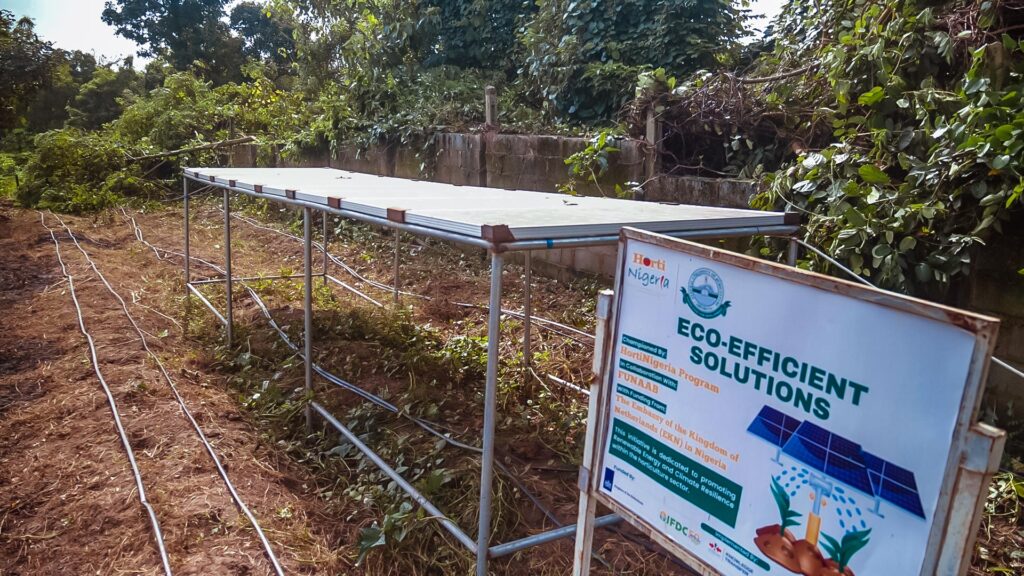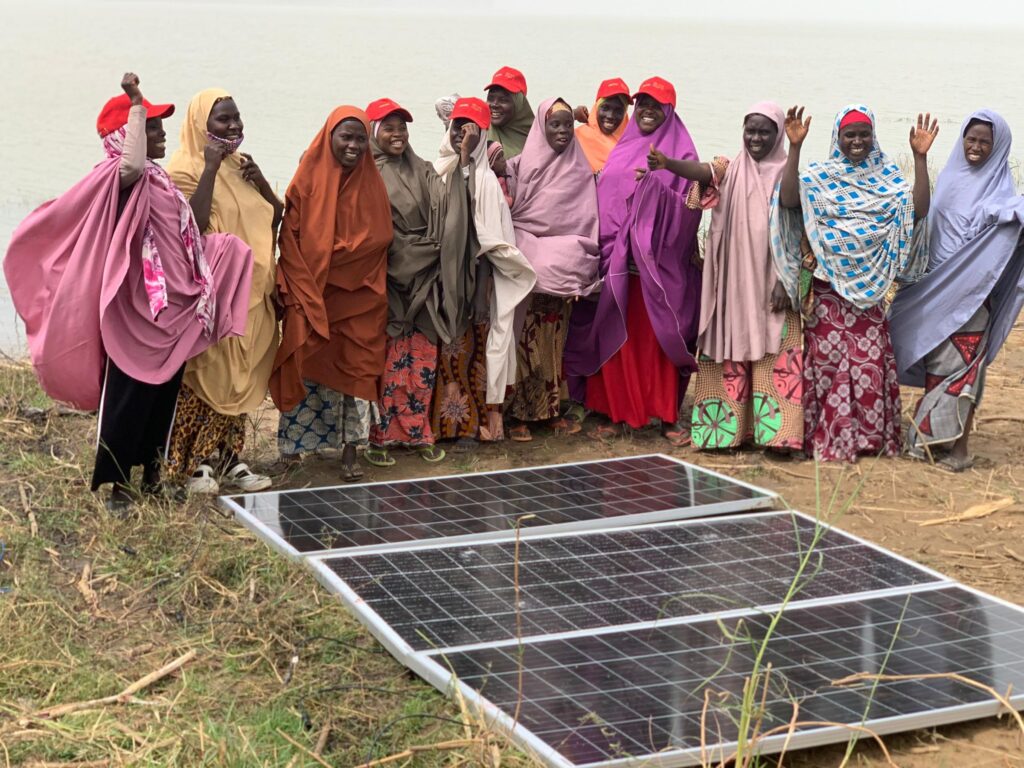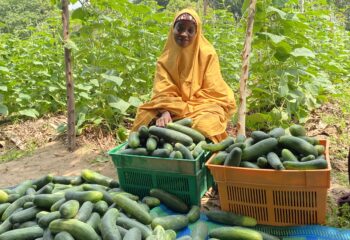
As access to water and energy continue to be a persistent challenge for farmers in Nigeria, the HortiNigeria program is making significant strides in transforming the horticultural landscape through a pilot of solar-powered irrigation pumps.
HortiNigeria is providing farmers with access to innovative technology and empowering them with the knowledge and skills to adopt clean energy solutions in their farming practices. This initiative is improving yields, reducing environmental impact, and paving the way for a more sustainable future for agriculture in the country.
“I wanted to show other farmers, particularly young farmers, how this technology could change their lives. I believe that when we share knowledge, we grow together.”
Kehinde Lawrence, entrepreneurial farmer
One of the most pressing challenges for farmers across Nigeria is reliable access to water for irrigation. Traditionally, farmers have depended upon costly fuel-powered pumps or manual labor to irrigate their crops. These methods are inefficient, time-consuming, and economically unsustainable.
Moreover, fuel-powered pumps are prone to breakdowns, adding to maintenance costs and operational difficulties. These factors have led to poor crop yields, particularly during the dry season. In addition, diesel- and gas-powered pumps contribute to carbon emissions and ecosystem degradation, taking a heavy toll on the environment.
In response to these challenges, the HortiNigeria program has introduced solar-powered irrigation pumps as a clean, cost-effective, and sustainable alternative in various hubs in Oyo and Ogun states. Harnessing the power of the sun, this technology serves as a reliable, eco-friendly irrigation system that not only improves productivity but also reduces costs, compared with fuel-powered pumps.
One of the early adopters of the solar-powered pump is Alex Oparinde, an entrepreneurial farmer in Oyo State. Before acquiring a solar-powered pump, Alex faced the same challenges many other farmers have encountered—expensive fuel costs, inefficient irrigation, and unpredictable crop yields. His diesel-powered pump often broke down, proving to be both a financial burden and an unreliable option during critical farming periods.

However, installation of the solar pump has completely transformed Alex’s farm. With the new system in place, Alex is now able to irrigate his crops using solar energy, ensuring a consistent water supply. He no longer has to worry about rising fuel prices or costly repairs. Not only has Alex benefited personally from the technology, he has become a strong advocate for solar-powered irrigation in his community, helping other farmers understand its advantages.
Kehinde Lawrence, another entrepreneurial farmer with the program in Ogun State, is also participating in the pilot activity. He regularly hosts farm visits, allowing other farmers to see firsthand how the solar-powered pump operates and its positive impact on yields.
Kehinde noted, “When I first got the solar pump, I wasn’t just thinking about my farm. I wanted to show other farmers, particularly young farmers, how this technology could change their lives. I believe that when we share knowledge, we grow together.”
Through these farm visits and discussions, Alex and Kehinde are actively contributing to a broader movement within their community to embrace clean energy solutions. Their knowledge-sharing extends to teaching fellow farmers how to operate and maintain the solar pumps, ensuring they can maximize the technology’s lifespan and effectiveness.
HortiNigeria’s training sessions, combined with Alex and Kehinde’s on-the-ground leadership, are fostering a deeper understanding of solar irrigation and its role in enhancing agricultural productivity.
These farmers’ efforts are helping to bring awareness to the technology and showcase its practicality. As others observe the tangible benefits of solar irrigation, they are becoming increasingly interested in adopting the system for their own farms. Gbenga Aina, a farmer in Ogun State, shared, “I intend to set up my own irrigation system; it is one of my key goals for 2025.”
Many farmers now see the solar-powered pump as an essential resource for improving their productivity and sustainability. Through the work of Alex, Kehinde, and others, HortiNigeria is laying the foundation for a more sustainable, productive, and environmentally responsible future for Nigerian agriculture.
The HortiNigeria program (2021-2025), funded by the Embassy of the Kingdom of the Netherlands in Nigeria, aims to facilitate the development of a sustainable and inclusive horticulture sector that contributes to food and nutrition security in Nigeria. HortiNigeria is led by IFDC and implemented together with KIT, Wageningen University and Research, and East-West Seed Knowledge Transfer Foundation.





